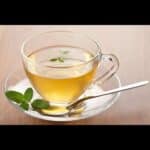What is Rose Tea
Roses have been utilized for thousands of years for cultural…
…and medical purposes. There are approximately 130 species of roses and many more varieties. All roses are edible and may be used to make become rose tea, however some are sweeter than others. Rose tea is a fragrant herbal beverage prepared from the petals and buds of rose flowers. It is said to have various health advantages, many of which are not well supported by science. This article will teach you all you need to know about rose tea, including its possible advantages and applications.
Naturally Caffeine-Free
Caffeine is present in many popular hot drinks, including coffee, tea, and even hot chocolate. Caffeine has numerous good benefits, including decreased weariness and improved alertness and energy levels; nevertheless, some people choose to avoid it or are unable to handle its negative effects.
Caffeine, for example, can raise blood pressure and create anxiety in certain people. Rose tea is naturally caffeine-free, making it an excellent substitute for some of the more frequent hot caffeinated beverages. However, bear in mind that some rose teas are a combination of ordinary caffeinated tea and rose petals, so if you want to avoid caffeine, look for 100% rose petal tea.
How To Make Rose Tea
Roses are not only beautiful, but they are also incredibly adaptable. You may brew them hot or cold, use them to make iced teas, or put them to a water jug to give a hint of smell to water, or use them to lattes or desserts. They go nicely with nearly every sort of tea, from mint to rooibos, white or green, and even tart hibiscus. Although many varieties of roses can be used to make herbal tea, some will be sweeter than others. If you overbrew your rose tea, it will become bitter.
Tea is often made using dried rosebuds or petals, although fresh roses can also be utilized. You may either dry them yourself from organically produced roses or purchase them already dried food-grade rose petals or buds. If you’re drying rose petals at home, make sure they’re pesticide-free and steer clear of those from supermarkets or florists, which are generally chemically treated.
Benefits of Drinking Rose Tea
Rose tea not only smells and tastes great, but it may also have several health advantages. Gallic acid, anthocyanins, kaempferol, and quercetin are all present. Rose tea has traditionally been used to help digestion, protect the heart, combat inflammation, and relieve many forms of discomfort. However, many of the purported health advantages have yet to be properly validated. Rose tea and extracts may have antimutagenic, anti-inflammatory, antibacterial, anti-diabetic, antioxidant, and antidepressant properties.
Antioxidant Properties
Rose tea has a lot of antioxidants. According to one study, rose tea may have more free-radical scavenging activity than green tea. However, not all green teas are created equal, and not all rose teas are created equal. They may have stronger or lower antioxidant activity depending on the kind and other variables. When combined, they have the potential to create a fantastic, antioxidant-boosting drink with a great taste. Indeed, adding a few rose petals to your black or green tea may increase the antioxidant activity even further. Another study discovered that tea prepared from rose petals has significantly more antioxidant activity than tea manufactured from rose buds.
Promoting Sleep
Caffeine is not present in pure rose tea. That means you can enjoy it immediately before going to bed. Furthermore, studies have shown that some chemicals in rose extracts have a hypnotic effect and may be useful for promoting sleep. If you really want to spoil yourself before heading to bed, consider a caffeine-free rose latte.
Protecting The Brain and Pain Relief
Rose extract may assist to alleviate pain since it has analgesic properties. However, it may have more than simply hypnotic and analgesic properties. Rose extract has been shown in studies to potentially reduce seizures and aid patients with Alzheimer’s disease.
Treating Dysmenorrhea
Roses have traditionally been used to alleviate menstruation hemorrhage. According to research, rose tea can substantially help with the treatment of dysmenorrhea symptoms such as menstruation pain, discomfort, and anxiety.
Weight Loss and Digestion
Rose petals may aid digestion and have a mild laxative effect. As a result, it may also aid with weight loss goals. Pure herbal rose tea contains no calories. If you cold-brew dried rose petals, you will be able to enjoy a fragrant yet light herbal tea that is free of bitterness.
Was this helpful?
Hi there! I’m a food enthusiast and journalist, and I have a real passion for food that goes beyond the kitchen. I love my dream job and I’m lucky enough to be able to share my knowledge with readers of several large media outlets. My specialty is writing engaging food-related content, and I take pride in being able to connect with my audience. I’m known for my creativity in the kitchen, and I’m confident that I can be the perfect guide for anyone looking to take their culinary journey to the next level.








